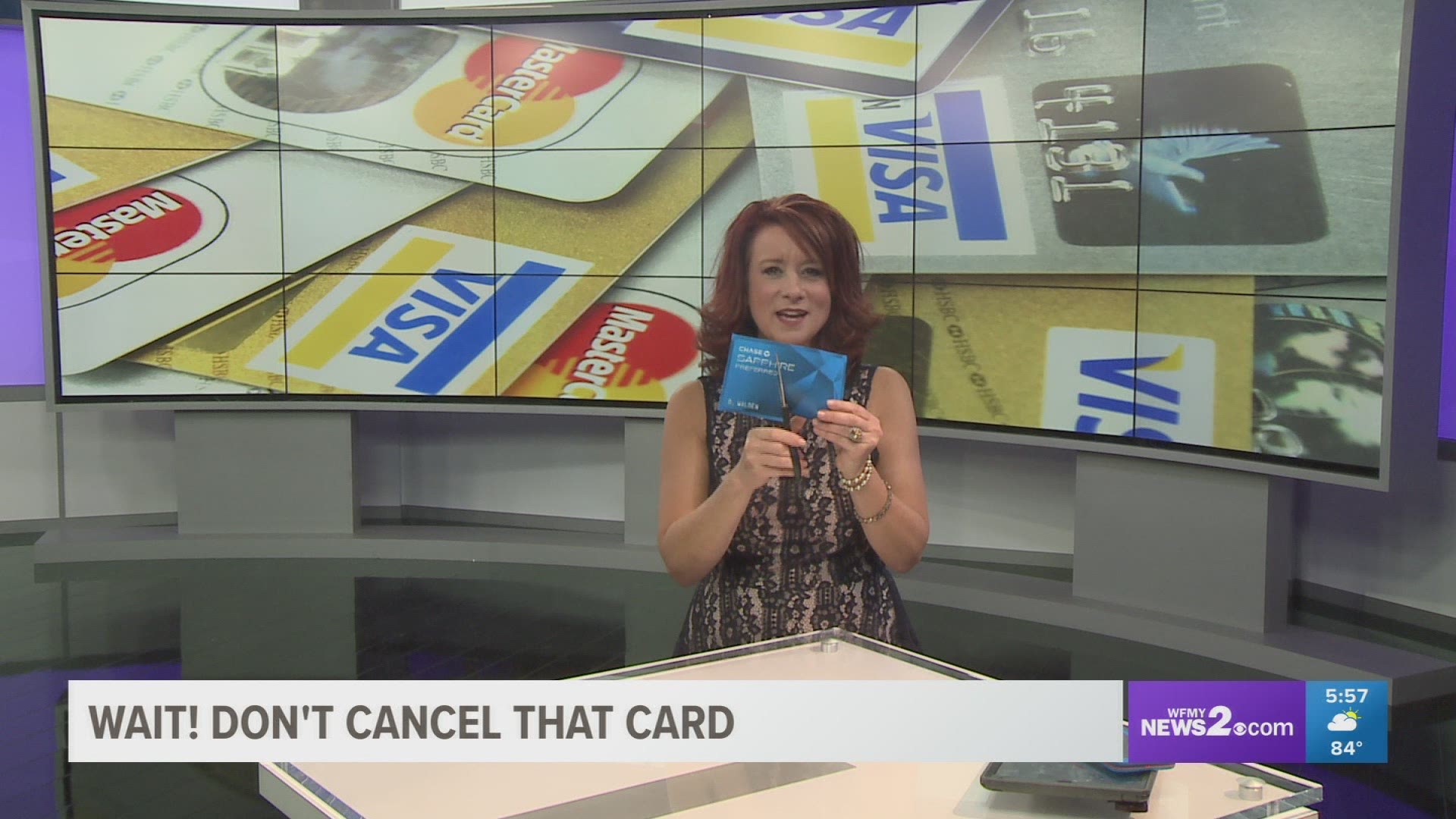As interest rates continue to rise, consumers may be tempted to cancel those credit cards that carry the highest ones. But breaking up with your credit card isn't always painless or wise.
“There are very few reasons to cancel a credit card,” says John Ulzheimer, a credit expert who has worked at Equifax, one of the big three credit bureaus, and FICO, the firm that runs the calculus that determines credit scores used by the most lenders.
“If you want to break up with a credit card, you need to be cognizant of what trouble this seemingly benign action is going to cause,” he adds.
The Impact on Your Credit Score
The main risk when you cancel a credit card is the potential negative impact on your credit score. In the land of FICO credit scoring, your credit utilization ratio helps account for 30 percent of your score. That’s a mouthful of a term, but it’s a simple math equation: the sum of all your credit card balances divided by the total credit limit on your cards. There is no magic ratio you want to shoot for, but lower is better.
The problem with canceling a card is that you immediately reduce your available credit limit. “Even if your spending doesn’t change, your credit score could fall because your utilization rate goes way up,” says Ulzheimer.
“If your utilization rates jumps from 30 percent to 60 percent, you could see your credit score fall 50 points or more,” he says. That’s a severe haircut that could cost you plenty more than the annual fee.
FICO credit scores range from 300 to 850. A score of 760 puts you in good shape to qualify for the best rates when buying a home, getting car insurance, or taking out a loan. Recently, someone with a FICO score of at least 760 might be able to qualify for a 4.2 percent interest rate on a 30-year fixed-rate mortgage. If a higher credit utilization ratio caused the 760 score to drop to 710, the interest rate could rise to more than 4.6 percent. On a $300,000 mortgage, that could add about $40 a month to a mortgage payment, or about $500 a year.
The Consequences on Your Credit History
A less worrisome side effect of canceling a card is the impact on the part of your FICO score that looks at the length of your credit history. This accounts for 15 percent, and longer credit histories typically help garner high scores.
When you cancel a card, your history with that card stays on your credit report—and thus is part of your FICO credit score calculations—for another 10 years. But after a decade, the history is removed from your score, possibly shortening your average account age and potentially lowering your credit score.
While no annual fees are obviously preferable, Ulzheimer suggests that a big-picture perspective is useful when deciding whether you should cancel a card. “Paying $79 a year to have a credit line of $10,000 to $15,000 is a pretty cheap way to have access to credit," he says. "Do you really need to cancel a card for that?”
Cost-Cutting Tactics
If the effects on your credit of closing an account make you leery, try these steps:
Ask for a fee waiver. If your main problem with keeping a card is the annual fee, Matt Schulz, chief industry analyst at CompareCards.com, recommends calling the bank and asking for it to be waived or at least lowered. In a recent survey, Schulz said that just 1 in 4 cardholders bothered to try to negotiate loan terms. Yet more than 80 percent of people who asked for their annual fee to be lowered or waived were successful. “People don’t realize what power they have to negotiate,” says Schulz.
Ask for a card downgrade. If there’s no give on lowering your fee, Schulz recommends asking the bank whether it has another card you could switch to that doesn’t charge an annual fee. It won’t offer the same rewards or perks, but if you were using the card infrequently, that’s not a problem. The advantage of doing this rather than canceling is that your credit history moves from the old card to the new card and you maintain your credit limit.
Shred it. If you don’t want the temptation of having more credit within reach, Ulzheimer suggests shredding a card rather than canceling it. “You keep the credit limit but can’t use the card,” he says. If you change your mind down the line, just call up the card issuer, say you lost the card, and you’ll have a replacement mailed to you lickety-split.
If You Decide to Cancel
Sometimes canceling makes sense. For instance, divorcing couples with joint credit cards should aim to close down those accounts. Or maybe you’ve come to the realization that a $450 membership fee for American Express Platinum or Citi Prestige is a bit too steep if you’re not getting value from the service and rewards, and your request for a reduction/waiver was rebuffed.
If you do need to cancel a card, try to offset the loss in that credit limit with additional credit on other cards. The easiest move may be to call up your remaining card issuers and request a credit limit increase. Or apply for a new credit card that offers a credit limit similar to the card you're canceling but doesn't charge an annual fee.
Opening a new card might cause a small but temporary reduction in your credit score. “I wouldn’t worry about it,” says Schulz. “It’s not nothing, but it’s nothing like the impact of having your credit utilization rate go way up when you cancel a card, which can have a far more negative impact.”

